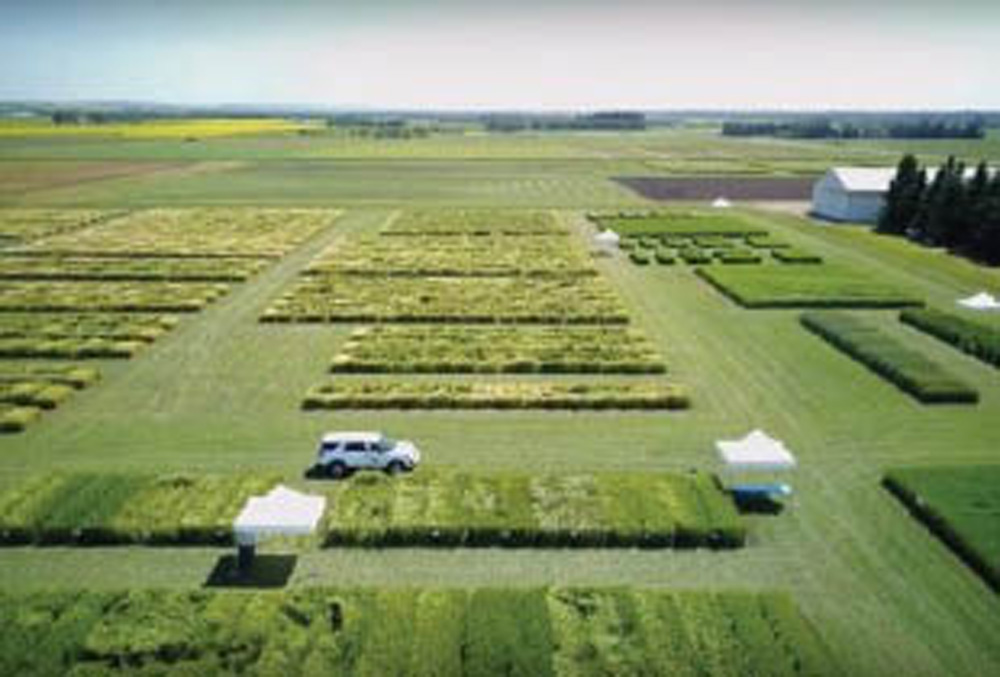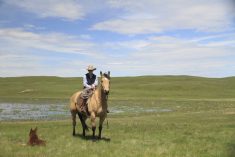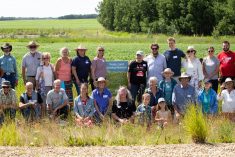[UPDATED: May 1, 2024] The Field Crop Development Centre at Lacombe, Alta., has a new name and identity that reflects a broadening focus.
Now called Western Crop Innovation as of April 1, it will build on a long history of barley breeding and agronomy research and expand to include a wider array of crop research.
The new name reflects that concept, said Rimbey-area farmer Jason Lenz, who chairs the new organization’s board.
Read Also
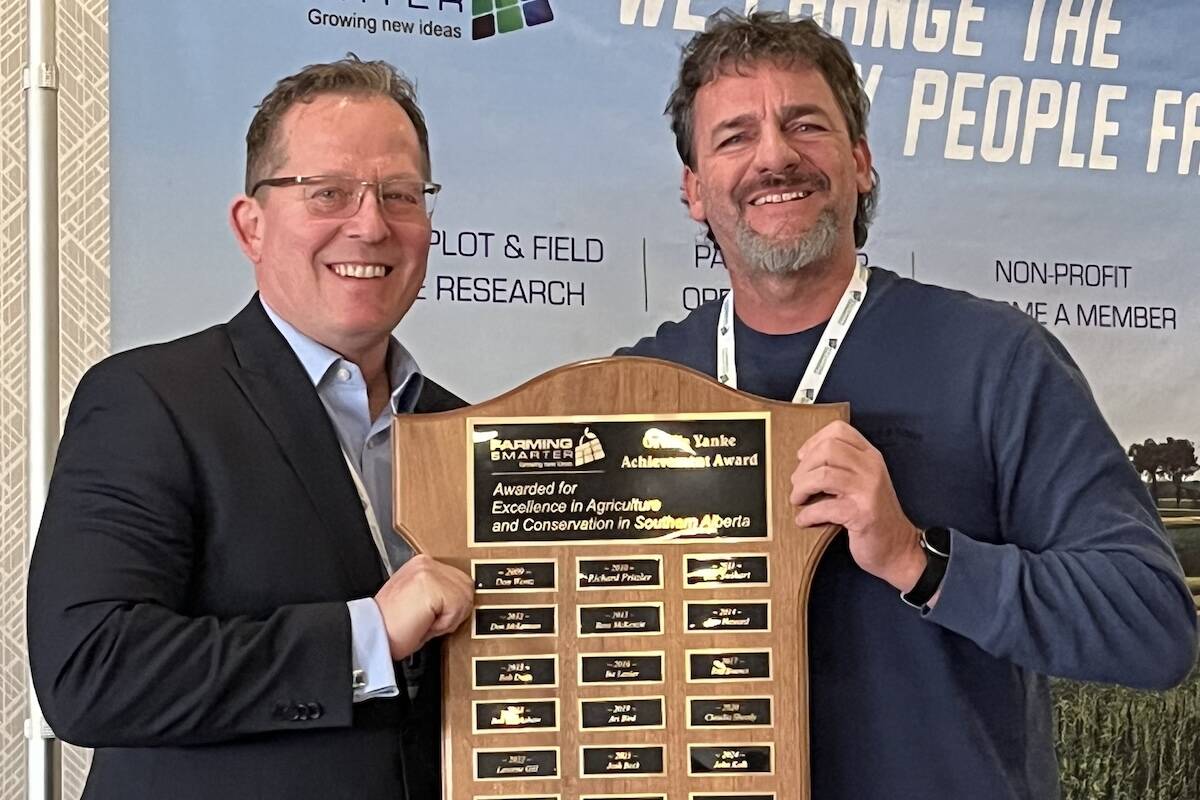
Half a million plots and a lifetime of impact: Dr. Brian Beres wins Orville Yanke Award
The renowned Alberta scientist celebrated three decades of agricultural innovation and the pioneering of the GEM framework at the 2026 Farming Smarter Conference.
“We’re open for business and we’re going to do more than just barley breeding there,” he said. “So we came up with a name that was broad. It encompasses crops. It kind of speaks to Western Canada. The innovation part is another word for important research work.”
The transformation began in 2020, when the Department of Agriculture and Irrigation divested itself of many agricultural entities and staff and moved to privatize research. At the time, Olds College began to oversee the centre’s operation. The rebooted organization has since received $2 million in funding from Results Driven Agriculture Research (RDAR), which has taken a leading role in reshaping the former centre into Western Crop Innovation.

“At the end of the day, there had to be a refocus and a new strategy and business plan,” said David Chalack, chair of RDAR, a not-for-profit organization that exists at arm’s length from the provincial government.
The group has 32 members and elects a board of directors. Chalack noted that, like many things, tranformation of the research facility was hindered by the pandemic.
“COVID was not really helpful in terms of getting the organization set up and more self-sufficient,” he said.
Lenz said RJ Sigurdson, Alberta minister of agriculture and irrigation, heeded stakeholders who said work done at the centre was important and had to continue.
“From there, they decided that the best way to ensure the continuation and the long-term stability of the centre would be to set up a separate non-profit corporation to look after administration, governance and the overall operation of the activities that happen there. That happened over the last month or so,” said Lenz.
Western Crop Innovation was incorporated during that time. Sigurdson appointed three farmers as interim directors — Lenz, Claresholm cattle producer Fred Lozeman and Camrose grain farmer D’Arcy Hilgartner — along with John Conrad, a representative for the government.
All three farmers also serve on the board of RDAR. Lenz said they were appointed because of familiarity with the governance of non-profits and ability to speak to the success of RDAR.
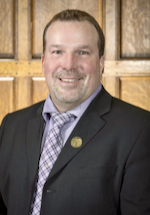
“We’re very separate from RDAR,” said Lenz. “The only similarities are that we’re a not-for-profit corporation and we’re going to lead Western Crop Innovation with strong governance, and make sure all the needs of Alberta stakeholders are met through the research activities at WCI.”
The name change represents a fresh start for the organization, he added.
Like the Field Crop Development Centre before it, Western Crop Innovation will focus on barley breeding and agronomy research.
“We envision a lot of the work that has been happening at FCDC is going to continue on,” said Lenz. “But in the long term, we kind of envision doing a whole lot more, because that centre, facilities and staff have so much potential.”
The facility has several labs and 160 acres. Its weather and soil conditions will be valuable for regional variety trials, said Chalack. He also noted opportunity to expand the scope of barley research.
“When people think of barley, they think of just malt barley in the production of beer,” said Chalack. “But a bigger role is barley that is used to produce silage. We have a huge feedlot industry in Alberta. Growing barley varieties that produce yield and quantity for silage production is important.”
RDAR is interested in research project investment and the new entity may eventually breed forages. Chalack said RDAR wants to encourage research that will be adopted and used by farmers.
Some 10 to 12 scientists who worked at the centre now fall under RDAR. They’ve been placed at the University of Lethbridge, Lethbridge College, the University of Alberta, and Lakeland College.
“They are now RDAR professors and we fund them,” said Chalack and they can apply to RDAR for project money. The new innovation centre has 22 staff members still in place.
“Part of the job for us at WCI is to do a full scan of operations there, make sure that there’s a place for everybody, and there’s no duplication in the work that is being done,” said Lenz. “We’re starting fresh with a new organization.”
The board of directors will examine what the centre has done before it considers changes.
“In the near future, we’re going to be reaching out to all of our crop industry stakeholders across Western Canada,” he said. They will be asked about their research needs and how WCI can address them.
“None of the work happens without funding commitments and that’s kind of our task for this year, is to build that business plan and that scientific plan for the activities that are going to happen at WCI,” Lenz said.
“We certainly see RDAR as being a long-term funding partner in particular in the future on different projects that might be happening at the WCI.”
*Update: the previous article content contained portions of a separate story. We apologize for any confusion this may have caused.


